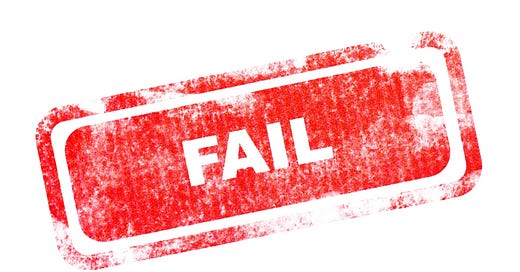Subbing on a Broadway show is probably one of the most nerve-wracking things a drummer or professional musician can do. At least, that's been my experience. And I've done a lot in this business since moving to New York in 1993.
Before Broadway, I was deep in the blues, rock, and funk scenes. But once I stepped into the world of subbing on Broadway, I quickly realized just how high the stakes were. Playing the right notes is just part of the job. The real challenge? Nailing the exact feel of the drummer you're subbing for while syncing perfectly with the music director, cast, choreography, click track, the other musicians in the pit, and making sure you hit every cue. You have to be that cog that keeps the machine running smoothly.
My First Subbing Experiences
The first show I ever subbed on was Rent at the Nederlander Theatre in the early 2000s. I was excited, but I was also completely on edge. I kept telling myself, ‘I'll be fine if I can just get through the first few measures.’ And somehow, I was.
The second show I subbed on was Little Shop of Horrors, covering for the incredible Rich Mercurio. That time, the music director was Henry Aronson, a phenomenal musician who also had a habit of picking up his legal pad mid-show to jot down notes.
That pad used to stress me out every time I saw it in the conductor cam. I told Henry that once, and I guess he thought it was funny because the next time he picked it up, he looked straight into the camera and said, "These notes are for you, Clayton." It was hilarious. It was a small moment, but it helped ease the anxiety I carried into every sub gig after that.
I’ve been fortunate enough to have subbed on several shows, including Evita, The Color Purple, SpongeBob SquarePants, Cats, and Avenue Q. Each one was a different experience, but equally as stress-inducing.
The thing is that anxiety never really goes away. And it shouldn't, because you're not playing that show every night. Most subs only get in once or twice a month, sometimes less. The chairholders often rotate through four or five subs, and it's tough to stay sharp. You've got to be on top of the music all the time—even if you're not in the pit every week.
The Stakes Are Higher Than You Think
When I held the drum chair for Memphis, Lady Day at Emerson's Bar and Grill, and Ain't Too Proud, I tried to get my subs in as often as possible—at least twice a month if I could swing it. But I knew what they were up against: limited reps and maximum pressure.
I've seen some great drummers burn out on their first night subbing. And it wasn't because they weren't good players; it was because they didn't realize what the gig really required. Some came in from the jazz world thinking they could just "feel it out" or play loosely like it was a club date.
Big mistake.
Once, during Memphis, I was in the audience for a sub's first night. The drummer didn't sound bad to me, but the choreographer was also there. At intermission, I was told to suit up and play the second act because the drummer was being let go mid-show. Why? The choreographer didn't like what he was hearing. That's how cutthroat it can be. If you're off—even just a little bit—it can cost you.
So, How Do You Avoid Bombing?
If you're thinking of subbing on Broadway, here's what you need to keep in mind:
Keep reading with a 7-day free trial
Subscribe to Broadway Drumming 101 to keep reading this post and get 7 days of free access to the full post archives.






